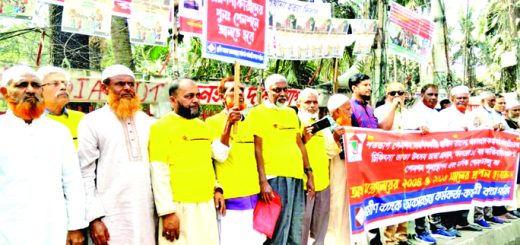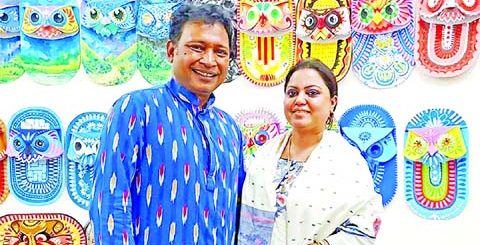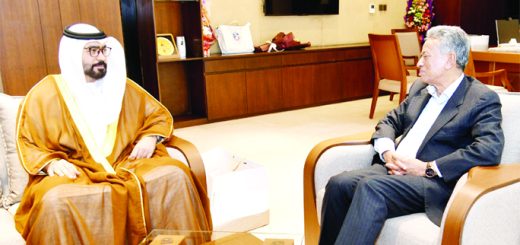Bangladesh in the era of experiential learning

Experiential learning is a way of acquiring knowledge and skills through experiences. Unless learners learn by doing themselves, the learning becomes superficial; it does not become perfect as the learners cannot very well relate the knowledge to everyday life. This kind of learning can never be called quality education. David Kolb, an American educationalist, has claimed that one mustact, reflect, and review activities continuously for achieving better knowledge and skills. As this experiential learning is considered better for making the younger generation more knowledgeable and skilled, the government of Bangladesh is going to introduce experiential learning to secondary level of education from the 2023 academic year. Although the experiential learning curriculum is going to be implemented in classes six and seven in 2023, it will be implemented in other grades of the secondary level on an incremental basis. It is expected that, if the experiential curriculum is implemented in secondary-level institutions, learners will acquire more compact knowledge and skills; and they would be able to act sensibly in the society and perform better in their workplaces.
David Kolb was a psychologist who believed that knowledge is reconstructed and created through experiences. He gave this theory being influenced by Jean Piaget (1896-1980), John Dewy (1859-1952), Kurt Lewin (1890-1947) who were also famous educational theorists thinking almost in similar ways as Kolb did. According to Piaget, learning is a process of adaptation to environmental stimuli; and in this process, learners recurrently reconstruct the previous knowledge to solve a new problem in a new situation. According to John Dewy, knowledge is socially constructed and in educational settings, children themselves and their experiences should get more importance than the curriculum. Again, Kurt Lewin claimed that learning is a process by which learners develop new insights or reform the old thoughts. What does David Kolb say in 1984 regarding learning? According to him, effective learning happens when a learner goes through four stages such as concrete experiences, reflection on the experiences, abstract or imaginary conceptualisation, and active implementation.
Experiential learning or experience-based learning is a broader term that subsumes other terms such as cooperative education, service learning, clinical education, student teaching, practicum, etc. In cooperative education, work is basically a part of the education program where students attend the courses in the educational institutions and do a part-time job. This job is considered as a part of the total credits of the program. Usually, this job or work connects the schools with the job market. After the job is over, the students would write a report critically reflecting on the work. Service learning is a part of civic responsibility; students have to do some social works as part of the partial fulfilment of the degree and that has to be done based on the already identified needs of the community or of the extended society. The other name of student teaching is teaching practice (TP). Students have to practise teaching in schools as part of the Bachelor of Education (B.Ed.) program.
Now the question is, are there any elements of experiential learning in the current secondary curriculum (NCTB, 2012)? Are they being properly implemented? Or, are those subjects which demand experiential learning approach being implemented properly? If not, what were the challenges? In response to the above questions, it can be said that there are experiential learning opportunities in different subjects such as Physics, Chemistry, Biology, English, etc. I am pretty sure, all the readers know that there is practical in the science subjects. This practical in science subject is a good example of experiential learning. Do students learn science through experimentation in the laboratory or elsewhere? Similarly, the English curriculums of 1995 and 2012 kept provision for four language skills practices; the textbooks had included different speaking, listening, reading, and writing opportunities. So far as is known, most of the English teachers do not engage students in four language skills practices. Why aren’t the students being engaged in language skills practices? I firmly believe that, the readers know it very well as ‘the answer is blowing in the wind!’ What challenges do the teachers and the students face in implementing the textbooks? Have the challenges been taken into cognisance with a view to implementing the coming experiential curriculum from 2023? Finding suitable answers to the stated questions are important because if we know the challenges, we can be aware of the possible remedies.
Another big question is- is it always possible to take the learners through first-hand experiences in all subjects? If not, how will the students experience a learning point? In science and Math subjects, students can easily be taken through experiences in and outside the classrooms. Science laboratories can be used for first-hand experiences or the learners can be taken to nature. In Mathematics classes, for example, students can be engaged in measuring the surfaces of tables, benches, books, the classroom and find the areas of them. However, in case of the descriptive subjects such as History, Political Science, etc., acting out technique can work better or video-clips can be used to provide with experiences. If none of these is available, persons having vast knowledge and authentic experiences can narrate the events. These are lower level of experiences which can be used but the first-hand experiences are always preferred.
Experiential learning demand internship opportunity for every student; it can be for a month or two; they must work with their parents or elsewhere to experience how hard those works are! It may help them to understand the value of every work. For better implementation of the experiential learning, the class routine needs to be flexible; if a teacher goes out with the students to expose them in a particular situation, a forty- or fifty-minutes’ class might not be enough. Theory and practice must go together; and students’ practical activities should be assessed with priority as doing is more important than knowing in experiential learning. In order to make these happen, teachers must be trained, motivated, and proactive. Resources like computers, multimedia projectors, and simulators are needed to give students required experiences.
There should be a body that would continuously look after if the curriculum is being properly implemented or not? What mechanism will the educational institutions adopt to record the activities of the learners as the records of experiences are needed to preserve as evidences for justifying assessment? There is a paradigm shift in the field of teaching and learning; teachers are not habituated in this new approach. Therefore, there should be a solid plan about how the curriculum will be implemented; who will be responsible for what; what resources will be required and where will the teachers get the resources from; etc. The plan should be circulated publicly in order to prepare the students, teachers, and the guardians, and other stakeholders for the upcoming changes. The authority can use the electronic and the print media for disseminating the concepts of experiential learning and making all the concerned aware of the probable changes in education. Mental readiness is essential for the successful implementation of new curriculum.
It is known from a reliable source that NCTB is going to start the dissemination training program soon country-wide. In the training, some selected guardians from every level such as zilla, upazila, pourosavas/unions, villages and some media people can be included in the dissemination training of the teachers because these people may provide support to the better implementation of the new curriculum. When the teachers start implementing the new curriculum, there should be a team to supervise the implementation and to mentor the teachers. Moreover, electronic devices such as computers, multimedia projectors, simulators that can provide students with real-like experiences can be procured for the educational institutions. We all should work sincerely for better implementation of the experiential learning curriculum for building a better Bangladesh.
[The writer is an Associate Professor at Govt. Teachers’ Training College, Dhaka and Vice-President, Research & Publications, English Teachers’ Association of Bangladesh (ETAB)]





